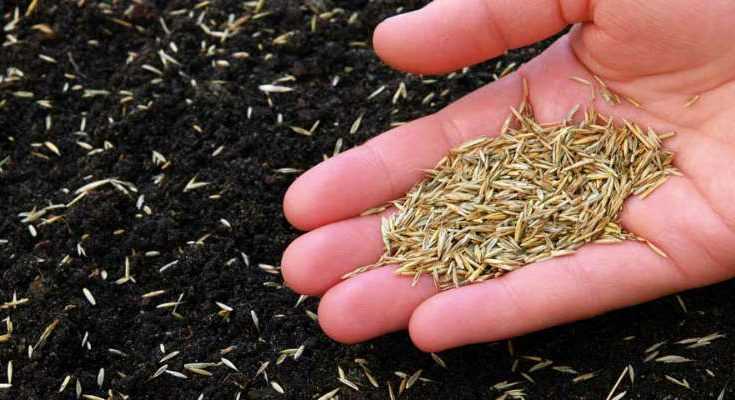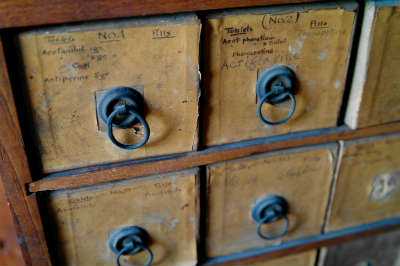Does Grass Seed Go Bad: How Long Does Grass Seed Last?

You may have noticed a bald spot in your lawn or simply just want to create more lawn area, and in the back of your mind you still remember having some grass seeds left over from the last time you seeded your lawn. The question we have here is, does grass seed go bad, will these grass seeds still germinate and grow?
We have to keep in mind that grass seeds are living organisms that interact with the environment around them and that also have a limited shelf life. Depending on external factors and environmental and storage conditions, yes grass seeds do go bad is the answer to your question!
Although do not be discouraged as there are ways to expand their shelf life and those seeds you have been saving might just have been in favorable enough conditions to still grow healthy and lush. Just because the seeds are a bit “Off” also does not mean they will not grow at all they may just need a little more love and care!
Even the most looked after lawn, that is mowed, reeled and fertilized regularly, need good quality seeds.
Does grass seed go bad?
Short answer is: yes. Eventually, depending on conditions and storage environment and methods, all grass seed go bad. But let’s have a further look at how and why grass seeds deteriorate over time. The expiration date on the package is for guidance only and seeds may be fertile even after the date.
Take into consideration that seeds are alive and need the appropriate surroundings to live in even if they are dormant. The germination rate of grass seed decreases with age and an old bag of seeds might have disappointing results.
Factors That Affect Seed Viability
The quality of the grass seed also plays a role in its longevity along with the temperature, humidity and storage container it is kept in. Some varieties of grass seeds last longer than others.
Keeping insects and rodents away from your grass seeds is important to keep them safe.
Also grass seeds need to be kept dry and in temperatures that are not too cold to cause freezing. Older seeds however do not want too much heat or humidity. As recommended by Oregon State University, seeds should be kept below 60 degrees F and at a relative humidity of 60% or less.
Ventilation is also important as most seeds can suffocate in a shed or area that is too densely stacked and not well ventilated.
Old grass seeds can still be used and may grow with extra care, fertilization and watering. You may need more seeds though as not every seed will germinate as with younger and fresher seeds.
Does grass seed expire?
Grass seeds usually have an expiration date that is stamped on the packaging, which it should live up to if kept in the prescribed conditions. It is not guaranteed that the seeds will stay viable though.
There is no sure-fire method to know if grass seeds are expired or not and even the expiration date on the packaging is a guesstimate of how long they will last.
You can however look at the texture of the grass seeds if they are clumpy or not and also if there are any foul smells.
How long does grass seed last?
We have found that according to most companies grass seeds are in their prime condition when they are less than one year old.
In fact, the question of how long can you store grass seed is not that simple. Although we have also noted that some grass seeds, such as rye grass have lived up to 5 years in the correct environment with proper storage, according to Scotts.
Most other grass seeds should be quite good for between two to three years on average. Once again all of this will depend on storage methods and conditions as well as the type of grass.
How to store grass seed correctly?
Storing grass seeds also depends partially on when the seeds harvesting time is and how the seeds are handled.
Internal moisture within the seeds may cause a shorter lifespan as well as damage to the seed coat from handling.
Moisture
Seeds should be kept dry and prevented from absorbing too much moisture that can cause fungal issues and decrease their viability. General humidity for storage should not exceed 60%.
Containers
Containers should be suitable for the seed type and be kept well sealed to keep internal moisture levels and not introduce extra moisture from the outside.
Ventilation
Keep your grass seeds in a well ventilated area that is not densely stacked as grass seeds need constant air flow to stay fresh and to prevent mold. Grass seed go bad quickly in enclosed, damp, clumpy storage places.
Temperature
Most grass seeds need temperatures that are not too hot and that will also not be cold enough to cause freezing. Make sure to keep grass seeds in a cool area that will keep its temperature reasonably constant. As best practice, store your grass seeds below 60 °F (source).
Storing left-over grass seeds
You may not use an entire bag of seed all at once, and here we recommend that you use the right type of packaging to store leftover seed.
A cloth sack or a burlap bag should do the trick as they both allow good airflow.
To limit moisture some say that placing a container with baking soda inside the bag can eliminate some of the extra moisture.
Conclusion
As we can deduct the three enemies in causing grass seed go bad faster are moisture, air and temperature. By keeping grass seeds reasonably dry, in a moderate and constant temperature with good ventilation they should last quite long and therefore we can increase the shelf life of grass seed extensively.
Make sure to also keep your seeds in a container and environment where pests such as rodents and insects cannot intrude. All grass seeds do go bad eventually, you can use the expiry date on the packaging as a guideline.
By following these guidelines we have given you should be able to keep your grass seeds fresh for a longer period as well as be able to calculate their shelf life correctly.
Also pay attention to birds and pests when grass seeds are exposed. Fortunately, there are ways to keep birds away from eating grass seed.
There may come the point when using the best quality grass seeds is not enough and invasive species attack your precious lawn. Then, there is no other way but to look into ways to fight back either using chemicals or other, more gentle methods. Read more about weed control here.
Getting rid of trees that may litter the lawn could be an option too, but pay attention to the increased risks.


